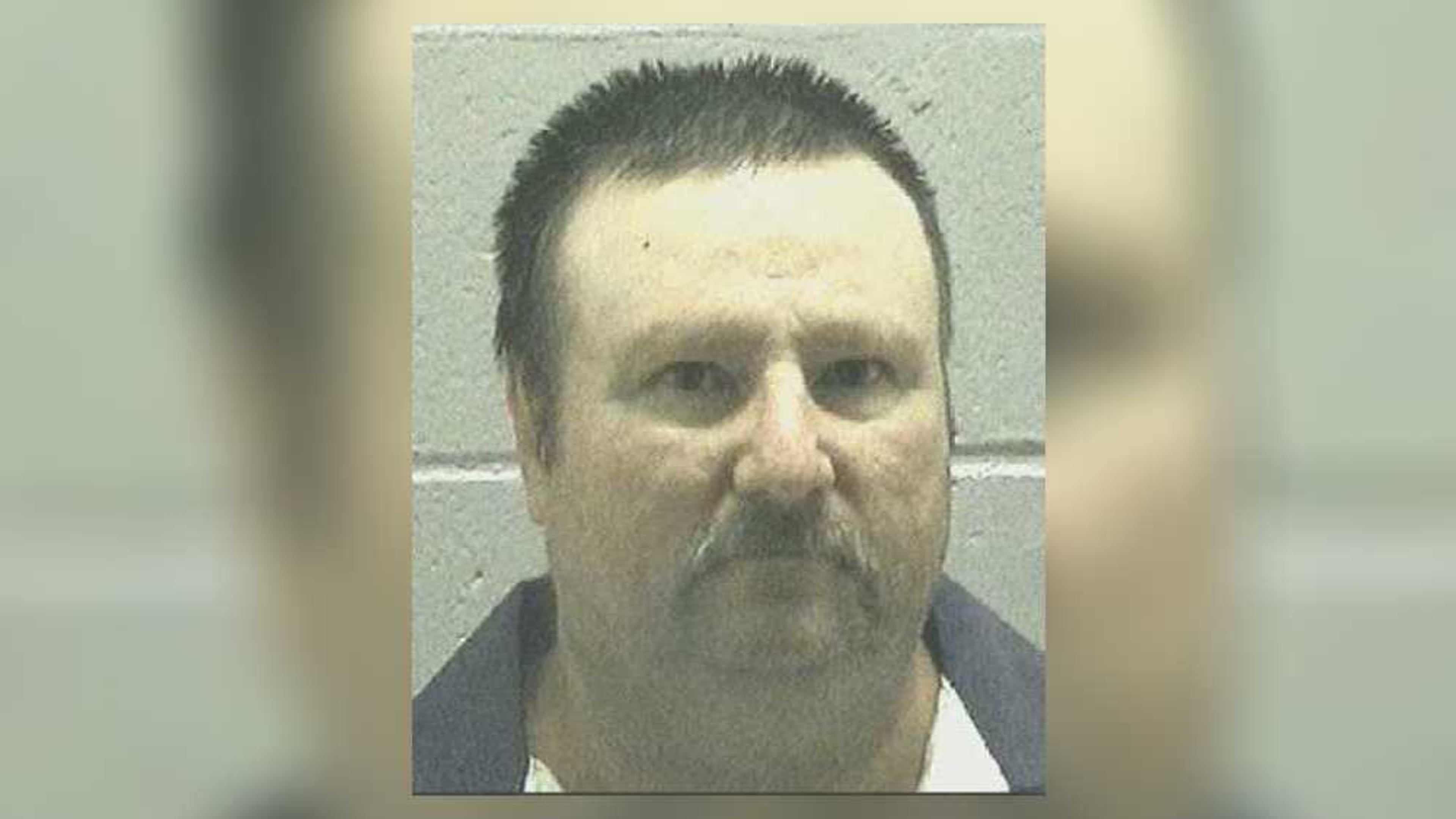Inmate to be executed Jan. 16 says DNA tests will show he’s no killer

As Georgia prepares to carry out its first execution of 2020, lawyers for death row inmate Jimmy Meders say DNA tests will show he was not the person who shot and killed a convenience store clerk in Brunswick more than three decades ago.
Meders is scheduled to be put to death by lethal injection on Jan. 16. At a hearing on Wednesday, a Glynn County judge will consider whether to grant Meders' request for DNA testing on the murder weapon — a Dan Wesson .357 Magnum revolver.
Meders, 58, was sentenced to death for killing Don Anderson during a Jiffy Store robbery at 2:35 a.m. on Oct. 14, 1987. After Anderson opened the cash register, Meders shot him in the chest and then in the head, prosecutors said.
Meders grabbed cash and food stamps out of the register before leaving the store with Greg Creel, who accompanied him and was heating sausage biscuits in the microwave, prosecutors said. Meders and Creel ran to a car where Bill Arnold was waiting behind the wheel, according to testimony.
Creel and Arnold were never charged and both testified against Meders. They said they did not know he had a gun prior to the shooting. For that reason, if DNA tests show that Creel and Arnold handled the murder weapon, it would undermine not only their credibility but also the state’s case, Meders’ motion says.
Evidence used to convict Meders was extremely damaging, and state attorneys are citing that in their own motion opposing DNA testing.
Some of the cash taken from the register was “bait money” kept by the store to help catch robbers. That money, with matching serial numbers, and food stamps were found by police in Meders’ coat pocket.
Another prosecution witness, Randy Harris, who owned the auto shop where Meders worked, testified that less than an hour after the Jiffy Store shooting, Meders showed up at the Best Western where Harris, who was married, was staying with a teenage girl.
Harris testified that Meders said, “I just blowed a man’s head off over $38.” Meders then pulled out a handgun that smelled like it had just been fired, Harris said.
After Meders’ arrest, police searched his home for the murder weapon but came up empty. Two days later, Harris, who was Arnold’s cousin, told police the weapon might be under Meders’ waterbed. A second search found it there.
All this amounts to “overwhelming evidence” of Meders’ guilt, the state said in a motion filed by District Attorney Jackie Johnson and state attorney Sabrina Graham. Because new DNA findings would not undermine the evidence used to convict Meders, the tests aren’t necessary, they said.

But Meders’ attorneys say they also want to see if Harris’ DNA was also on the murder weapon. If Harris’ DNA is found, “that result would show a deliberate attempt by Harris and others to pin the crime on Meders,” their motion said.
Early on, Meders denied any involvement in the crime. But a year later, after he’d been charged, he told a police investigator he was at the scene and witnessed Arnold shoot Anderson.
At trial, Meders testified that after he, Harris, Creel and Arnold had been drinking that day, he returned home and passed out. Around 11 p.m., Meders said, Arnold came to his house, woke him up, picked up his .357 Magnum and escorted him to a car parked outside.
Later, when Meders, Creel and Arnold arrived at the Jiffy Store, all three went inside, Meders said. Arnold suddenly shot Anderson and then, waving the gun around, ordered Meders to take money out of the register, Meders testified.
Arnold, who died years ago, testified that he had nothing to do with the murder.
» 5 things to know: Death Row and the death penalty in Georgia
» VIDEO: Georgia's 10 longest-serving death row inmates
» INTERACTIVE: The faces of Georgia’s death row
Shortly after they began deliberations, the jurors in Meders’ case submitted some questions to Superior Court Judge James Tuten. But they didn’t get the answers they were looking for.
Prosecuting the case was John Johnson. The chief assistant district attorney has obtained a number of high-profile convictions over his career, but judges ordered new trials in two of his death penalty cases because of prosecutorial misconduct — finding key evidence in the accused's favor had been withheld from the defense.
The lawyer representing Meders was public defender John W. Davis, a former U.S. congressman.
According to Meders, in the hours before the Jiffy Store shooting, he, Creel and Arnold drove around Brunswick in a Plymouth Road Runner. Arnold was behind the wheel and holding the .357 Magnum, Meders said.
At one point, Arnold fired a shot at a truck owned by a man who’d recently gotten into a fight with Arnold and Creel, Meders testified. Arnold then drove to the house of a family with whom Creel was feuding and fired a shot at another truck parked outside that home, Meders said.
This testimony prompted one of the jury’s questions: Did anyone file a report about those shootings?
Neither Johnson nor Davis responded. Instead, Tuten told the jury he could not respond to questions about evidence and sent them back to continue deliberating.
As it turned out, there were police reports about the shootings, but they were never introduced into evidence. Johnson and his lead investigator had them in their files, court records show.
In one of Meders’ initial appeals, Johnson testified at a 1995 hearing and was asked about the reports. Johnson said he gave Davis free access to his files, which contained the reports. But those reports were not found in Davis’ files.
The police report of the first shooting said a woman reported hearing a shot fired at her residence about two hours before the Jiffy Store murder, and that she saw a vehicle that matched the Road Runner’s colors. In a complaint filed about the second shooting, a resident specifically mentioned Creel as a possible culprit.
Meders’ initial appellate lawyers wanted to ask Davis whether Johnson’s files contained the police reports in question or whether he just missed them. But Davis died before he could testify about it.

Mike Admirand, a Southern Center for Human Rights lawyer who now represents Meders, noted that the jury in the 1989 trial indicated they wanted Meders to receive a sentence of life in prison without the chance for parole. But that sentencing option would not be available in Georgia for another four years, and they were told not to consider it.
“The jury didn’t want Mr. Meders to be sentenced to death, because the facts didn’t support it,” Admirand said Tuesday. “DNA testing would provide another reason for Mr. Meders to receive the sentence the jury wanted to impose: a sentence of life without parole.”


